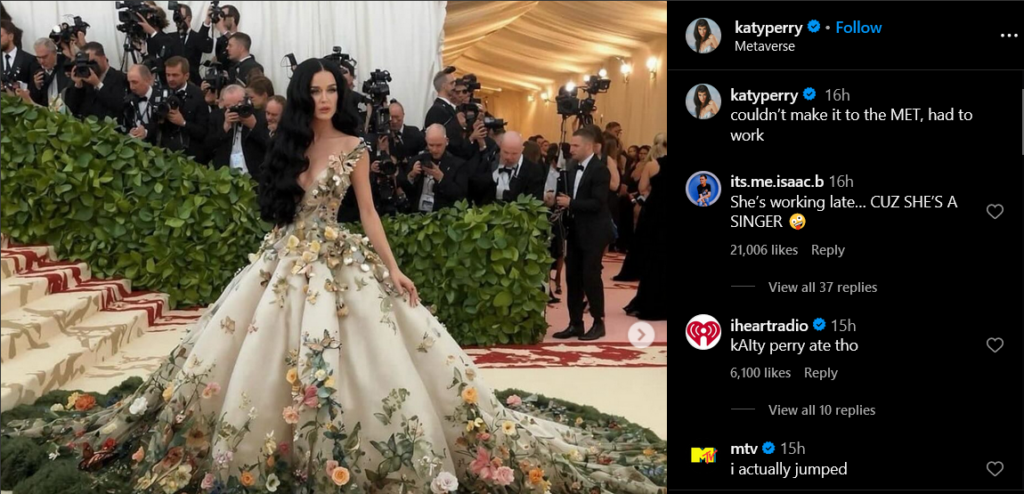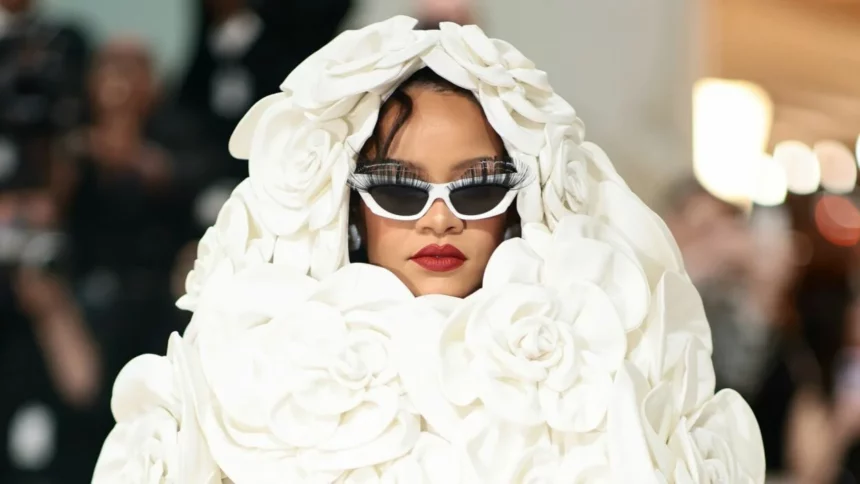The annual Met Gala is a showcase for celebrities to surpass their previous glamorous appearances on the steps of the Metropolitan Museum of Art in New York, while fans and observers from home engage in lively discussions and critiques. However, this year’s event presented a new challenge for confident observation due to the influx of artificial intelligence.
AI-generated images dominated this year’s Met Gala, creating fictional appearances for a range of pop culture figures, from Katy Perry to Rihanna. Some images depicted celebrities who were not even present at the gala, while others misrepresented celebrities like Dua Lipa who attended but were shown in inaccurate outfits.
Katy Perry, who did not attend the gala, was a major target for viral AI-generated images. One particular image, which misrepresented her presence at the Met Gala, exploded online with over 300,000 likes and 13 million views. The caption on X (formerly Twitter) stated, “Katy Perry. That’s it.” A community note later clarified that the image was AI-created, featuring the Met Gala stairs from 2018, not 2024.
Perry responded to the AI-generated buzz by sharing one of the images on her Instagram, humorously addressing her absence from the event due to work commitments. “Couldn’t make it to the MET, had to work,” she posted, alongside a screenshot of a text conversation with her mother, who was also fooled by the AI image. Perry playfully warned, “lol mom the AI got you too, BEWARE!“

Rihanna, another Met Gala favourite who was unable to attend this year, was also depicted in fake, yet thematic attire by AI images, according to a report by People. These images were later identified by community notes as either AI-generated or digitally altered, noting that Rihanna had not appeared at the gala.
Selena Gomez was another celebrity who didn’t attend the gala but was subject to AI-generated images that circulated widely and have yet to be officially debunked on X. AI also misrepresented Dua Lipa’s appearance, showing her in a Regency-era corset dress from 2021, falsely claimed to be her outfit for the 2024 Met Gala. In reality, Lipa wore a black lace dress by Marc Jacobs to the event.
The proliferation of these AI-generated or altered images is part of a worrying trend. While they may seem harmless, the increase in deepfakes and similar manipulations targeting celebrities has contributed to confusion and a decline in media literacy, making the already unreliable online environment even more challenging to navigate.
The frustration with AI’s unnecessary intrusion into the Met Gala was evident among X users, with one commenting on the difficulty in distinguishing real photos from AI-generated ones, and another expressing annoyance at the AI-themed posts.
Despite the issues with AI, technology still played a prominent role at the Met Gala, with TikTok sponsoring the event and its CEO, Shou Zi Chew, making an appearance on the red carpet. Interestingly, TikTok influencers were less visible, despite the app’s sponsorship and its significant cultural impact. Instagram head Adam Mosseri also attended, continuing the trend of tech leaders participating in the event.
This year’s Met Gala not only served as a celebration of fashion but also highlighted the increasing complications of discerning reality on the internet, intensified by the rise of AI-generated content.







